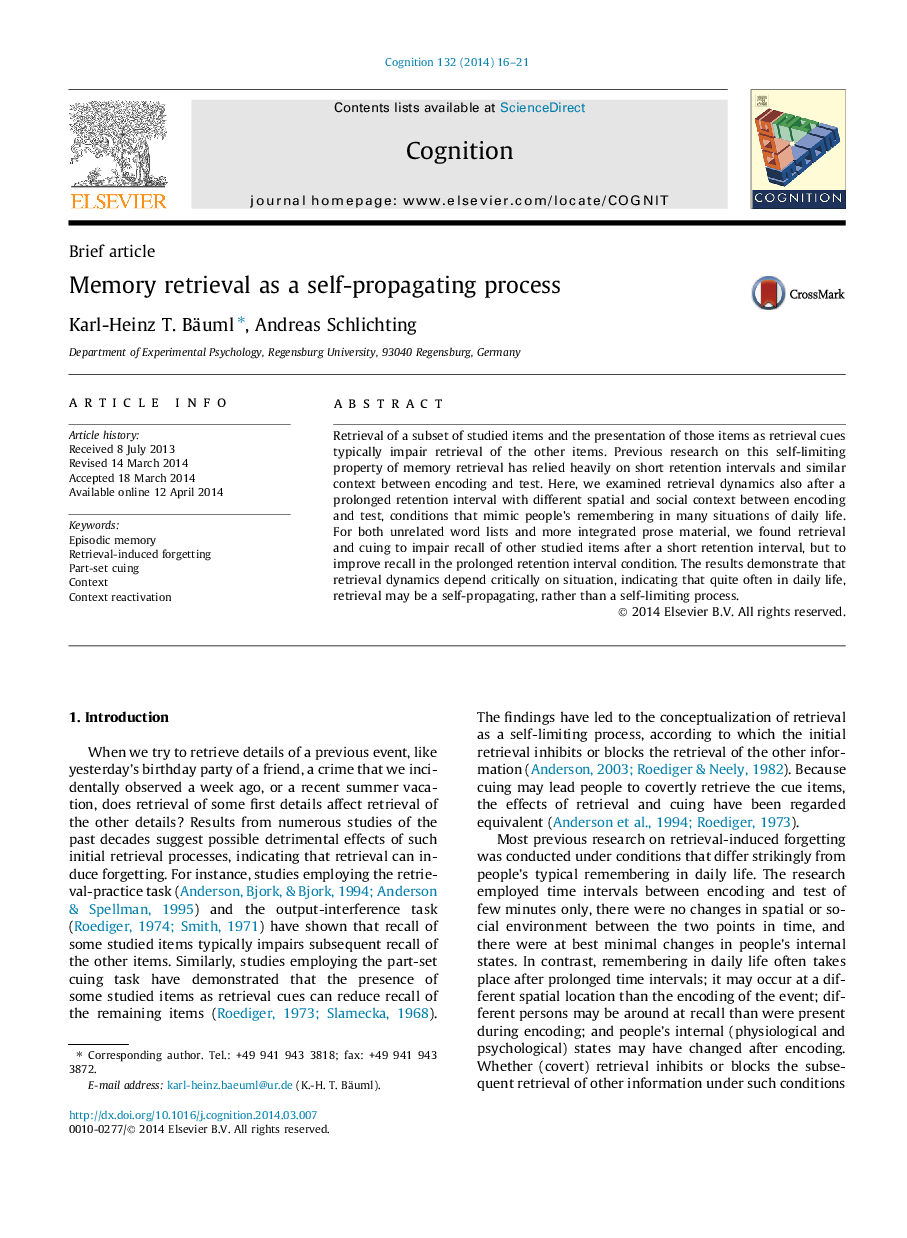| Article ID | Journal | Published Year | Pages | File Type |
|---|---|---|---|---|
| 10457760 | Cognition | 2014 | 6 Pages |
Abstract
Retrieval of a subset of studied items and the presentation of those items as retrieval cues typically impair retrieval of the other items. Previous research on this self-limiting property of memory retrieval has relied heavily on short retention intervals and similar context between encoding and test. Here, we examined retrieval dynamics also after a prolonged retention interval with different spatial and social context between encoding and test, conditions that mimic people's remembering in many situations of daily life. For both unrelated word lists and more integrated prose material, we found retrieval and cuing to impair recall of other studied items after a short retention interval, but to improve recall in the prolonged retention interval condition. The results demonstrate that retrieval dynamics depend critically on situation, indicating that quite often in daily life, retrieval may be a self-propagating, rather than a self-limiting process.
Related Topics
Life Sciences
Neuroscience
Cognitive Neuroscience
Authors
Karl-Heinz T. Bäuml, Andreas Schlichting,
